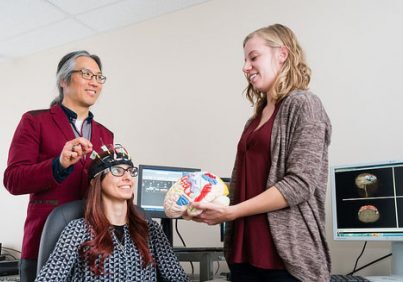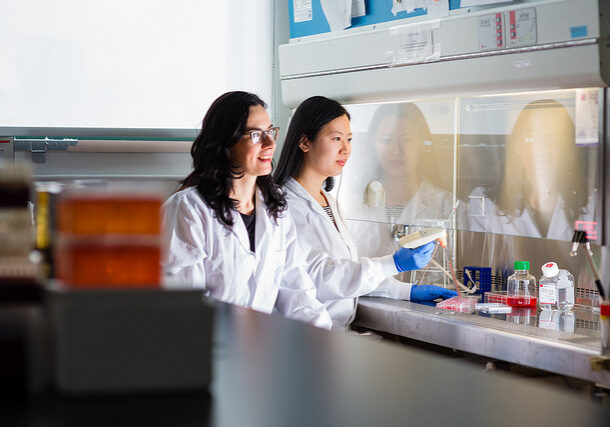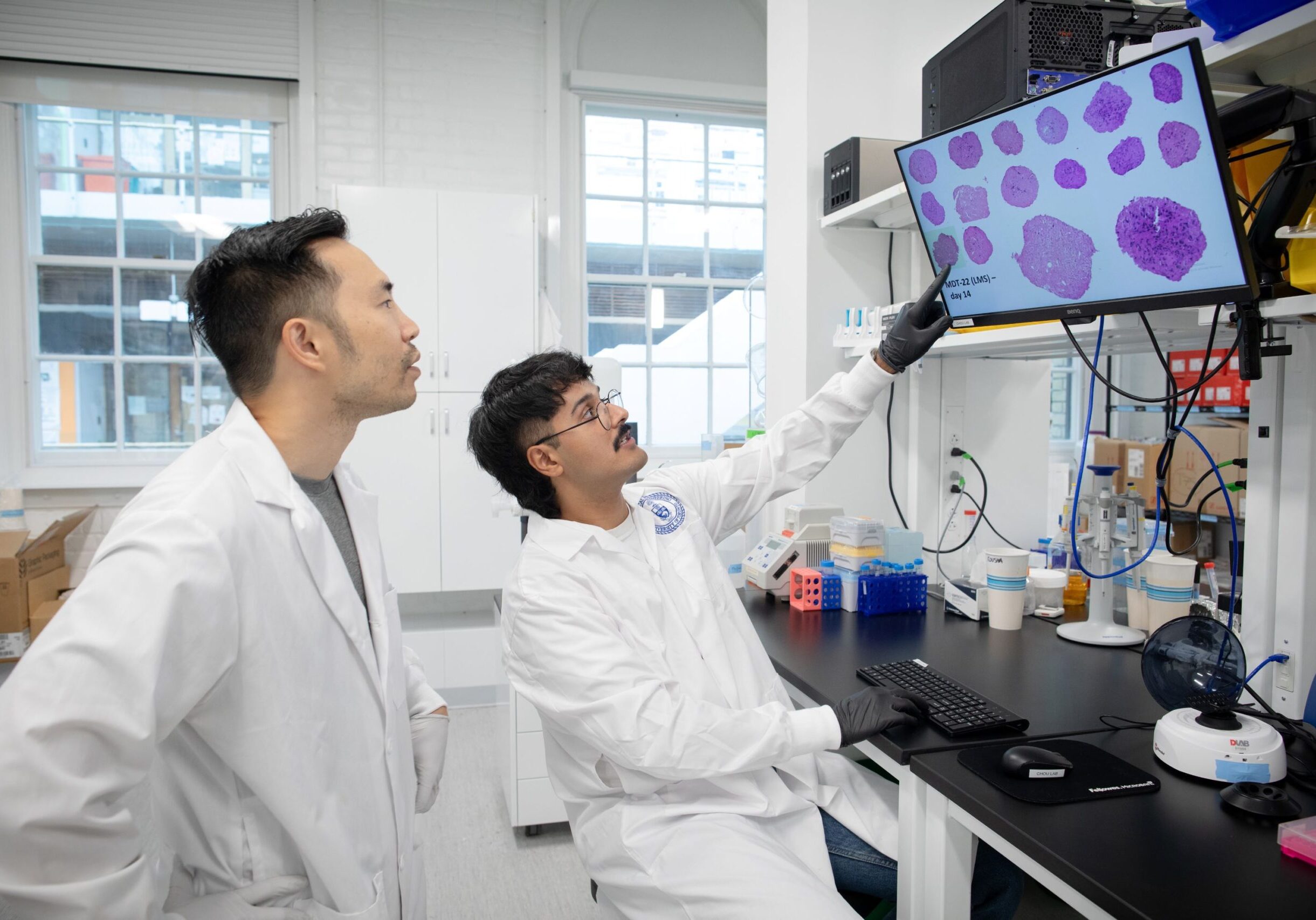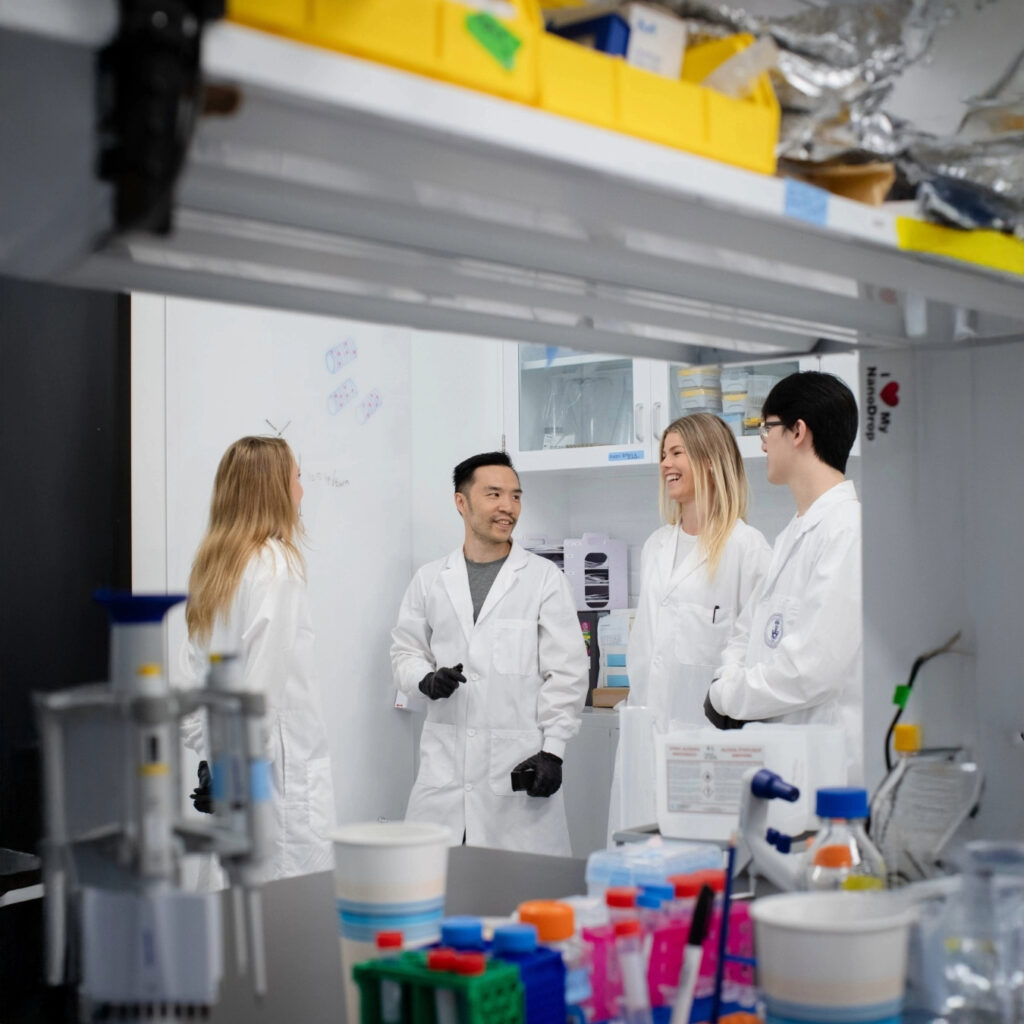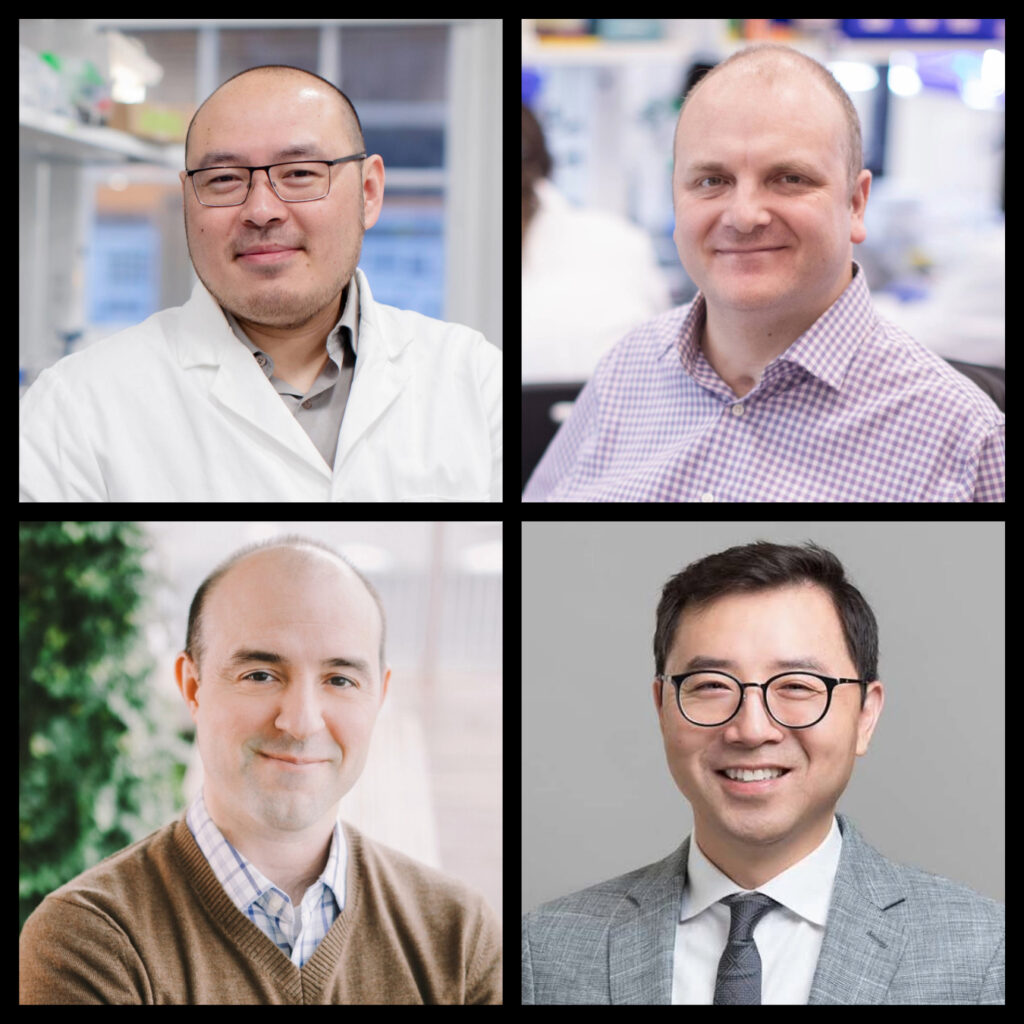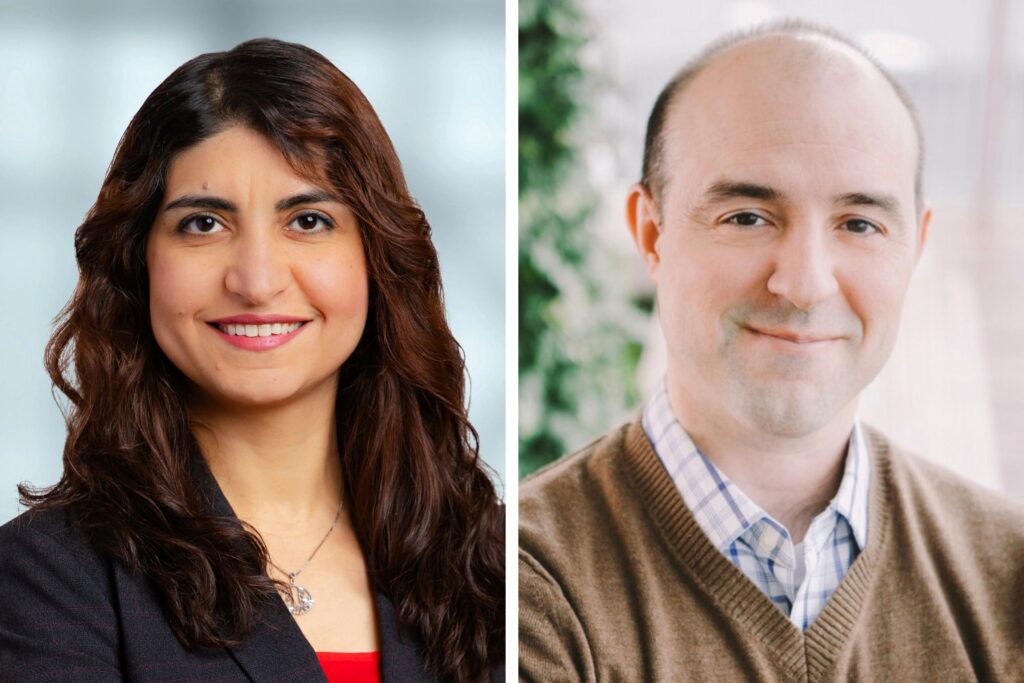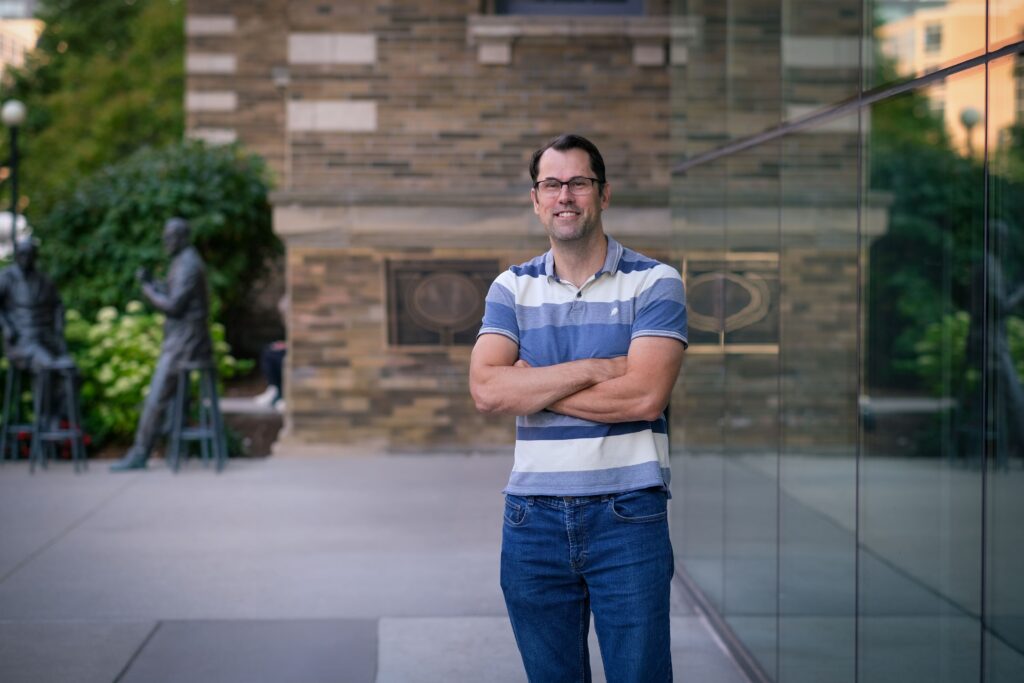Faculty & Research
Faculty & research are integral components of BME. With a strong focus on research, BME is located in the heart of Canada’s largest health-care research hub. Our graduate students receive their training from 14 departments at U of T, 10 partner hospitals, and 7 research institutes & commercialization centres.
At BME, our cross-disciplinary approach in biomedical and clinical engineering enables our researchers to cover a diverse set of topics. Find out what our research publication are saying about our research focus.
Quick Navigation
Faculty directory
Core Faculty
We have 30+ core faculty members that span across cell & tissue engineering, clinical engineering, and molecular engineering disciplines.
Cross-Appointed Faculty
BME currently hosts cross-appointed faculty members across more than 30 academic units, partner hospitals, research institutes, and commercialization centres.
Emeriti
Learn about some of our retired faculty members
Research streams
Clinical
BME’s clinical engineers design technologies, devices and strategies for people with chronic disease, traumatic injury, disabilities and mobility limitations to help them integrate more fully with their environment.
Cell & Tissue
Research that has the potential to change how we think about disease and aging is happening at BME. Regenerative medicine uses stem cells and biomaterials to repair, replace or regenerate damaged tissue, organ structures and function.
Molecular
BME researchers are advancing disease detection, customizing drug delivery and improving health-care outcomes with faster and more precise technologies and systems.
Latest news
BME Research in Action – Professor Leo Chou
At the Institute of Biomedical Engineering (BME) at the University of Toronto, Professor Leo Chou is developing self-assembling molecular technologies to improve disease diagnostics, therapy, and personalized medicine. His team combines DNA nanotechnology, protein engineering, and computational design to create programmable molecular systems with potential applications in cancer immunotherapy and cellular diagnostics.
4 BME faculty members receives Connaught Innovation Awards in 2024-25 cycle
Aereas Aung, Michael Garton, Aaron Wheeler, and Paul Yoo are four of the BME faculty members among eighteen researchers at the University of Toronto are receiving 2024-25 Connaught Innovation Awards in support of their impactful research.
Two U of T Biomedical Engineering Professors Renew Canada Research Chairs
Azadeh Yadollahi (left), a Tier 2 Canada Research Chair in Cardiorespiratory Engineering, and Aaron Wheeler (right), a Tier 1 Canada […]
Professor Elaine Biddiss Receives CIHR Grant to Advance Digital Motor Rehabilitation for Children with Disabilities
Professor Elaine Biddiss receives CIHR grant to advance digital motor rehabilitation for children with disabilities Young people with motor disabilities […]
Professor Jonathan Rocheleau Awarded CIHR Grant to Investigate Key Mechanism in Diabetes Treatment
Professor Jonathan Rocheleau, a researcher at the University Health Network (UHN) and the Institute of Biomedical Engineering (BME), has received a $100,000 grant from the Canadian Institutes of Health Research (CIHR) to explore a crucial aspect of insulin release—a process essential for maintaining healthy blood sugar levels.
Faculty startups
The following list highlights some of the startup companies that have been launched by these forward-thinking faculty members, demonstrating their commitment to translating academic knowledge into real-world applications and making a significant impact on the biomedical industry.
| Faculty Member | Commercialization Venture | Focus | Location |
|---|---|---|---|
| Jan Andrysek | LegWorks | Prosthetic Knee Joint | San Francisco |
| John E. Davies | Tissue Regenerative Therapeutics Inc. | Mesenchymal Stem Cells | Toronto |
| Milos Popovic | MyndTech Inc. | Medical Tech Company | Mississauga |
| Milica Radisic | Tara Biosystems | Cardiac Drug Discovery | New York |
| Jonathan Rocheleau | QuantM3 | Microfluidics Technology Diabetes Treatment | Toronto |
| Paul Santerre | Interface Biologics | Drug Delivery and other technologies | Toronto |
| Paul Santerre and Eli Sone | Cohesys Inc | Bone Tape to replace plate and screws in craniofacial repair; Angel investment | Toronto |
| Paul Santerre | Ripple Therapeutics | Non-polymeric anti-inflammatory drug delivery systems for ophthalmology; venture invested | Toronto |
| Molly Shoichet | AmacaThera | Injectable hydrogel platform technology | Toronto |
| Aaron Wheeler | Miroculus (formerly Kappex) | Digital Microfluidics Platform | Toronto |
